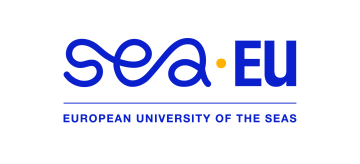Margarida Ribau Teixeira, PhD in Environmental Sciences and Technologies since 2006 from the University of Algarve, Master in Sanitary Engineering and Degree in Environmental Engineering, both at Nova University, Faculty of Sciences and Technology, Lisbon. She is an Associate Professor at the University of Algarve, Faculty of Science and Technology. She has published more than 55 articles in international peer-reviewed journals, 5 book chapters, and is co-author of one European and one national patent. She works in the area(s) of Engineering Sciences and Technologies with an emphasis on Environmental Engineering. In her professional activities, she interacted with 72 collaborators in co-authorship of scientific papers. The most frequent terms in the context of scientific and technological are technologies for water and wastewater treatment, emerging pollutants, natural organic matter, sustainable water treatment processes, water reuse, waste management, environmental impact assessment, and circular economy. CENSE includes 58 researchers, but integrates the CHANGE Associated Laboratory, together with the Mediterranean Institute for Agriculture, Environment and Development (MED) and the Center for Ecology, Evolution and Environmental Change (cE3c) research units with different competences that complement each other.
CENSE-UAlg is a small Management Unit in Algarve of the Center for Environmental and Sustainability Research (CENSE), headquartered at Nova University, School of Science and Technology, Lisbon. To promote sustainable development, CENSE promotes interdisciplinary research in environmental sciences and engineering, focusing on the interaction between human and ecological systems. CENSE develops its activities through the promotion of research projects, outreach initiatives, training programs, collaboration with private and public organizations, dissemination of results, and science-policy dialogues. CENSE’s research unfolds along five thematic areas (https://www.cense.fct.unl.pt/). In CENSE-UAlg the research thematic areas are Computation for Sustainability and Sustainable Water Sanitation, Wastes and Resources Recovery.
CENSE also integrates the CHANGE Associated Laboratory, together with the Mediterranean Institute for Agriculture, Environment and Development (MED) and the Center for Ecology, Evolution and Environmental Change (cE3c) research units with different competencies that complement each other.
In the CENSE-UAlg we develop leading international research on environmental engineering and sciences, namely on sustainable water sanitation, waste and resources recovery, and on computation for sustainability framed in the CENSE’s interdisciplinary research and advanced education in sustainability.
https://www.cense.fct.unl.pt/research-areas/sustainable-water-sanitatio…
https://www.cense.fct.unl.pt/research-areas/computation-sustainability&…;
Water treatment tecnhologies (e.g. membrane filtration, dissolved air flotation, etc.)
Luís Madeira, Margarida Ribau Teixeira, Adelaide Almeida, Teresa Santos, Fátima Carvalho (2023). Reuse of lime sludge from immediate one-step lime precipitation process as a coagulant (aid) in slaughterhouse wastewater treatment. Journal of Environmental Management Volume 342, 118278. https://doi.org/10.1016/j.jenvman.2023.118278.
Etiele Greque de Morais, José Carlos Amaro Marques, Ricardo Cerqueira, Cláudia Dimas, Vânia de Sousa, Nuno Gomes, Margarida Ribau Teixeira, Luís Miguel Nunes, João Varela, Luisa Barreira (2022). Sustainable tertiary urban wastewater treatment with microalgae natural blooms in pilot novel photobioreactors. Journal of Cleaner Production 378, 134521. https://doi.org/10.1016/j.jclepro.2022.13452
Filipa Vargues, Miguel Brion, Ana R. Costa, José Moreira, M. Ribau Teixeira (2021). Development of an iron oxide nanoparticle - activated carbon adsorbent for the removal of common pharmaceuticals in wastewater treatment. International Journal of Environmental Science and Technology 18, 2805–2818. https://doi.org/10.1007/s13762-020-03029-9.
V. Serrão Sousa, M. Ribau Teixeira (2020). Conventional water treatment improvement through enhanced conventional and hybrid membrane processes to remove Ag, CuO and TiO2 nanoparticles mixture in surface waters. Separation and Purification Technology 248, 117047. https://doi.org/10.1016/j.seppur.2020.117047.
V. Serrão Sousa, M. Ribau Teixeira (2020). Removal of a mixture of metal nanoparticles from natural surface waters using traditional coagulation process. Journal of Water Process Engineering 36, 101285. https://doi.org/10.1016/j.jwpe.2020.101285.
